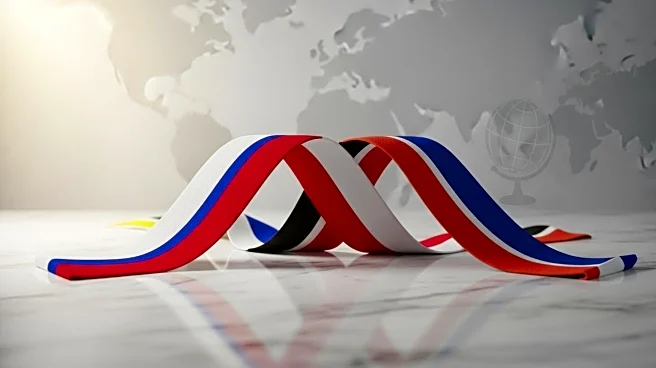What's Happening?
President Trump has expressed support for Ukraine, marking a shift in his stance on the ongoing conflict with Russia. During a sit-down with France's Emmanuel Macron, Trump voiced disillusionment with Russian President Vladimir Putin, acknowledging that his relationship with Putin did not facilitate an end to the war. In his address to the U.N. assembly, Trump criticized Russia's failure to win the war against Ukraine and supported NATO countries shooting down Russian aircraft violating their airspace. European officials are cautiously optimistic about Trump's pro-Ukraine position but remain skeptical due to his history of changing stances.
Why It's Important?
Trump's apparent shift in support for Ukraine could influence U.S. foreign policy and international relations, particularly with European allies. His comments may bolster Ukraine's position in the conflict and encourage NATO countries to take a firmer stance against Russian provocations. However, the skepticism surrounding Trump's consistency highlights the challenges in crafting a cohesive response to the war. The situation underscores the complexities of U.S. foreign policy and the impact of presidential rhetoric on global diplomacy.
Beyond the Headlines
The shift in Trump's stance may have broader implications for U.S.-Russia relations and the geopolitical balance in Europe. It raises questions about the reliability of U.S. commitments to its allies and the potential for changes in diplomatic strategies. The situation also highlights the influence of personal relationships between world leaders on international policy decisions.










